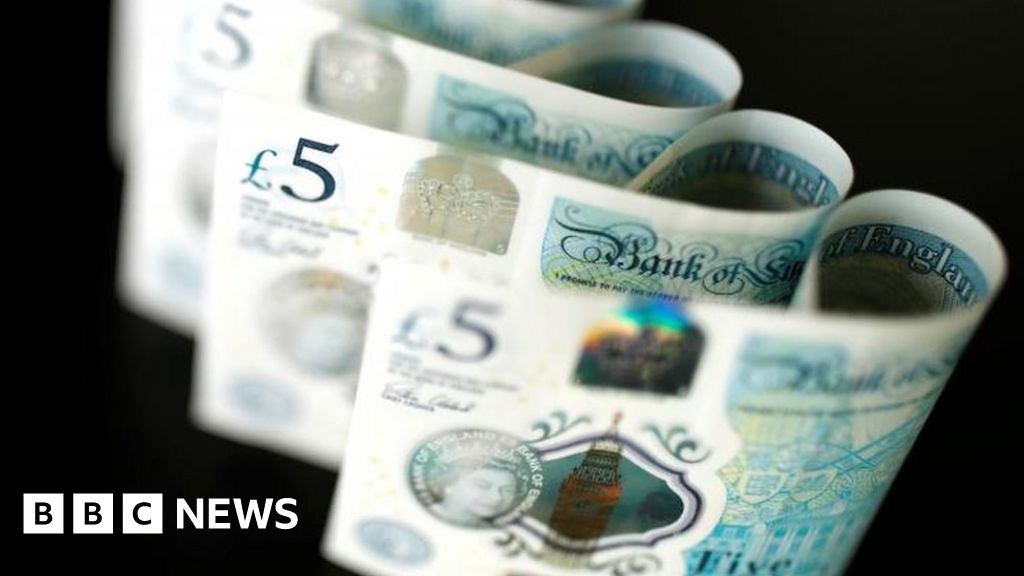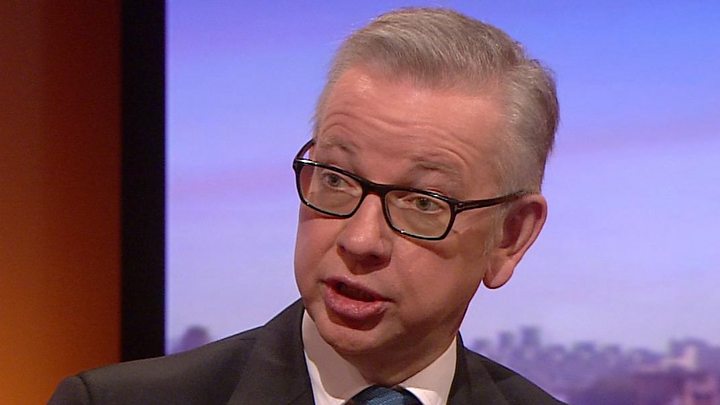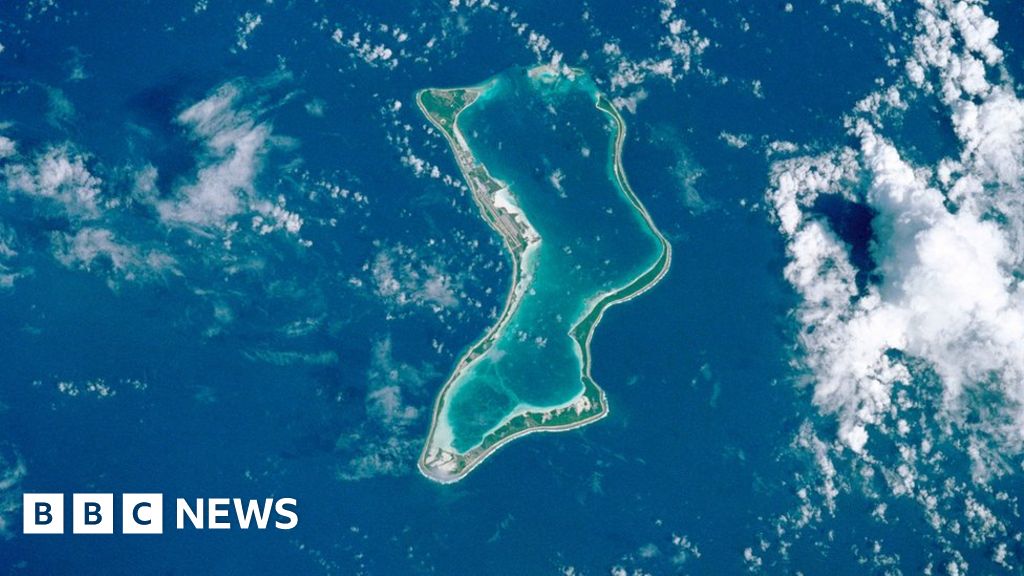On Nov. 21, British Labour Party leader Jeremy Corbyn detailed an ambitious platform for the December 12 election, promising to deliver Brexit in six months and vowing to tackle climate change.
BIRMINGHAM, England — Jeremy Corbyn introduced his Labour Party’s manifesto in a little red book this week, calling it the “most radical” in generations by promising British voters free child care, tuition-free university, free fast Internet, alongside the nationalization of mail, rail, water and energy.
Corbyn said if Labour wins Britain’s December election, his government will seek to “transform society,” grinding away the sharp edges from free-market capitalism and rebuilding the United Kingdom from the factory floor to the corporate suite “for the many, not the few.”
Corbyn’s campaign is in many ways a 2019 test-drive of the proposals and thinking being pushed by liberal candidates Sens. Elizabeth Warren (D-Mass.) and Bernie Sanders (I-Vt.) ahead of the Democratic presidential primaries in America.
Many of Corbyn’s plans — for a million new jobs erecting wind turbines, for home care for the elderly in need; for soaking the rich and Google — are popular with the public on both sides of the Atlantic.
But Corbyn is decidedly not.
The 70-year-old European-style socialist, who quotes Franklin Delano Roosevelt and used to peddle his bicycle to Parliament, is one of Britain’s least popular politicians.
Why?
“People don’t think that Jeremy Corbyn has got the chops to do the job as prime minister,” said Steven Fielding, a professor of political history at the University of Nottingham. “People have images of their leaders, and they just don’t see Jeremy Corbyn as the kind of person who can do that job.”
The pro-Tory news media have been mocking Corbyn for years, depicting him in cartoons as a bug-eyed “red menace” in a Lenin cap. The front page of the tabloid Daily Mail on Friday announced the Labour plans as “the Marxist Manifesto” and claimed “Corbyn declares war on marriage, inheritance and business.”
Corbyn, who is supportive of the Palestinian cause, has also been accused of failing to root out anti-Semitism within his party.
And he has taken a wishy-washy stance on Brexit — saying he would remain neutral in a hypothetical second referendum — at a time when voters are seeking leaders with more decisive positions on whether Britain should leave the European Union.
[In first debate between Boris Johnson and Jeremy Corbyn, questions of trust dominate]
According to pollsters, Corbyn is the most unpopular Labour leader since Michael Foot in the 1980s. Foot resigned after Margaret Thatcher trounced Labour in a landslide victory in 1983.
After almost a decade in power, Prime Minister Boris Johnson’s Conservative Party would seem to be prepped for a fall from power. Traditionally, that is the political cycle in Britain, as it is in the United States.
A further factor that should be working on Corbyn’s favor: The Tories have, by necessity and design, presided over a decade of austerity — the kind of belt-tightening budgets that hurt real people, that shutter libraries and take police off the streets.
Darren Staples
Bloomberg News
Labour supporters read copies of the party's general election manifesto during its launch in Birmingham on Thursday.
Under the Conservatives, London’s financial center has boomed, while the old industrial north of England has withered, with their once grand Victorian-era “high streets” now lined with shuttered businesses, alongside betting parlors, charity shops and pubs decorated by dust motes.
So Corbyn’s agenda — which like Warren’s would tilt power toward working people and away from corporations and billionaires — is highly appealing to many Brits.
Johnson’s Conservatives, however, are holding steady with a lead of 10 points or more in surveys of election intentions. The mop-headed, erudite, bombastic prime minister, with a proven record of stretching the truth, elicits strong opinions: Some love him; many don’t. But enough voters seem ready to back him that he is aiming to stay at 10 Downing Street with a majority government, promising to “get Brexit done.”
[Who is Boris Johnson? His life in photos.]
Marcus Roberts, director of international projects at polling firm YouGov, said, “It’s really interesting just how left-wing the appetite for change is, among so many British voters.”
A poll last week, for instance, found 51 percent of Brits said no one should be a billionaire.
Surveys suggest that while voters may like Corbyn’s agenda, they are concerned about how realistic and affordable the proposals would be, and they suspect it won’t just be the rich paying more taxes, but the middle and working classes, too.
There is also, Roberts said, “a disconnect between the popularity of its policies and the unpopularity of its leader.”
Labour leaders and supporters are anxious about their election prospects. And yet many in the party remain committed to their leader.
“I admire Jeremy Corbyn. He’s always stuck to his guns,” said Jean Brant, 69, a nurse in Birmingham who came out to support her party leader. “I don’t know what I’ll do if we lose this one.”
Brant acknowledged that the party was vulnerable. “Oh, they hate Jeremy, they do, the Tories. They say he loves the terrorists! But he’s the one who helped bring peace to Northern Ireland. They lie.”
Lewis Quinn, 18, a student studying politics at the University of Birmingham, was going to vote in his first general election. “Jeremy Corbyn is the real deal,” he said. “Agree or disagree, he’s always on the right side of history.” Quinn said college free of tuition is a brilliant idea.
Corbyn is perhaps an improbable leader of the Labour Party. For years — especially during the era of Tony Blair moderation — the member of Parliament for London’s Islington North constituency was outside of Labour’s mainstream.
From the backbenches, Corbyn opposed the Iraq War, criticized NATO and wrote articles for the Morning Star, a socialist newspaper founded by Britain’s Communist Party.
[In or out? Labour Party remains tortuously conflicted over Brexit and leader Jeremy Corbyn.]
By the time Corbyn ran for Labour leader in 2015, “Blair” had become a dirty word within the hard left of his party — his image tarnished by the Iraq War — and the country was tired of the cold austerity dishes served up by the Conservatives.
Many Labour lawmakers opposed Corbyn’s leadership, but he benefited from changes to the party voting rules that gave the grass roots greater say.
Under Corbyn, Labour has tacked hard to the left. The party’s agenda in the December elections is way more audacious than the one it proposed just two years ago, in the last general election.
His government would jack taxes on the rich, alongside Google, Facebook and Amazon, and punish “the tax dodgers, bad bosses and big polluters.”
There’d be a million new jobs, Corbyn promised, in his Green Industrial Revolution to combat climate change, real honest physical labor: carpeting Britain with new forests, building electric cars and erecting wind turbines.
In the way that Warren is promising “big, structural change” in America, Corbyn’s slogan for 2019 is “It’s Time for Real Change.”
Like the Democratic Party in the United States, Labour has been at war with itself.
Tom Watson, the more moderate, centrist deputy of the Labour Party who clashed with Corbyn on Brexit and anti-Semitism, announced this month that he would be stepping down.
Ian Austin, a former Labour politician, made the rounds on television this month saying voters should vote for Johnson because Corbyn was “completely unfit to lead our country.” Austin said Labour’s struggles with anti-Semitism — and Corbyn’s public acts of solidarity with Hamas and Iran — led him to leave the party.
In a televised debate this past week, Corbyn called anti-Semitism “an absolute evil and scourge within our society.”
Labour loyalists hope their party can replicate its trajectory in the 2017 general election, which saw its popular policies boost support for the party and its leader.
In that contest, Labour was 20 points behind in the polls but surged forward and, with a surprise photo-finish, denied then-Prime Minister Theresa May and her Conservative Party a majority in Parliament.
But there is no evidence, at the moment, of the tide suddenly shifting for Corbyn this time.
Roberts said: “With Corbyn not winning the TV debate, not closing the gap on who voters think would be the best prime minister, with him severely trailing Boris Johnson in the favorability stakes, it’s easy to see why popular policies from an untrusted, unpopular messenger aren’t connecting with voters … There’s still time for that to change, but that time is really running out.”
The Tories are drilling away at the public’s misgivings about Corbyn. In a newspaper column, Johnson compared Corbyn to Joseph Stalin, the Soviet dictator.
For his part, Corbyn frequently argues that a Johnson-led administration would put Britain’s beloved National Health Service at risk in a post-Brexit trade deal with the United States.
Corbyn won the loudest cheers from his supporters in Birmingham when he warned that Johnson could harm the universal state-run health service.
“We will never let Donald Trump get his hands on our NHS,” Corbyn said, prompting chants of “not for sale” from the audience.
Read more
Want to understand Boris Johnson? Read his incendiary journalism.
Can Boris Johnson win the support of Labour voters who want Brexit?
Can Boris Johnson keep his seat? A young Muslim immigrant is challenging the British prime minister.
Today’s coverage from Post correspondents around the world
Like Washington Post World on Facebook and stay updated on foreign news
Let's block ads! (Why?)
https://news.google.com/__i/rss/rd/articles/CBMisQFodHRwczovL3d3dy53YXNoaW5ndG9ucG9zdC5jb20vd29ybGQvZXVyb3BlL3VrLXZvdGVycy13YW50LWplcmVteS1jb3JieW5zLXJhZGljYWwtY2hhbmdlLXRoZXlyZS1ub3Qtc3VyZS10aGV5LXdhbnQtaGltLzIwMTkvMTEvMjIvOWU0NTdiMTgtMGJiNC0xMWVhLTgwNTQtMjg5YWVmNmUzOGEzX3N0b3J5Lmh0bWzSAcABaHR0cHM6Ly93d3cud2FzaGluZ3RvbnBvc3QuY29tL3dvcmxkL2V1cm9wZS91ay12b3RlcnMtd2FudC1qZXJlbXktY29yYnlucy1yYWRpY2FsLWNoYW5nZS10aGV5cmUtbm90LXN1cmUtdGhleS13YW50LWhpbS8yMDE5LzExLzIyLzllNDU3YjE4LTBiYjQtMTFlYS04MDU0LTI4OWFlZjZlMzhhM19zdG9yeS5odG1sP291dHB1dFR5cGU9YW1w?oc=5
2019-11-23 14:44:00Z
52780444639710



